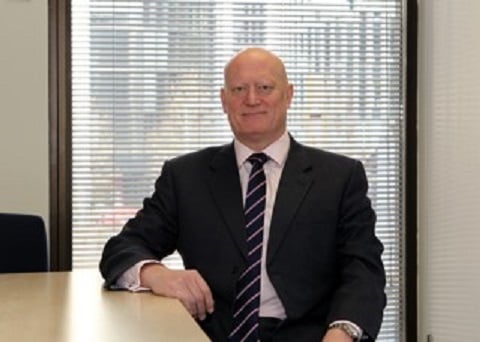Mike Bruce joined Global Risk Partners (GRP) two years ago as CEO of broking, where he looks after the firm’s broking businesses – but the beginning of his career looked remarkably different. Bruce started out in IT and management consultancy, where some of his early work included personally writing a fingerprint recognition system for the Home Office, as well as writing software for the Ministry of Defence that was used on Navy destroyers and submarines.
After gaining experience advising insurance companies as a consultant, Bruce joined Lambert Fenchurch in 1999, where he progressed to the role of group managing director of Heath Lambert, then headed to Bluefin, where he became CEO in 2013 after three years at the company.
Insurance Business spoke to Bruce about what’s changed in the industry during his career, and whether brokers are keeping up.
What do you enjoy about insurance and what drives you?
I guess it’s a sector where my personal skill set fits quite well, because it’s a business that has lots of apparent complexity to it – and I’m not suggesting insurance is simple – but ultimately if you get a small number of things right and focus on those, that’s where you can really make a difference. There’s always going to be noise and complexity, but it is a fairly simple business when you boil it down to what makes a successful broker versus an unsuccessful one.
An old chairman of mine had a phrase that was along the lines of, be clear what your key priorities are and be relentless in the way you just keep coming back to those things, and that will make a difference. There’s always lots going on, lots of distractions, but it’s that relentless focus on a key number of things that will make a difference.
What are the major changes you’ve seen happen in the industry during your career?
Regulation is the obvious one, that’s been a massive change to the industry. I think the key thing in that is accepting that some of the changes are here to stay. I always treat compliance as something that should be embedded in your business and seen as day-to-day. I think if you keep compliance ‘over there’ and rail against it or don’t embrace it, it becomes a real problem for you. It’s not going away, so you need to accept it and make compliance a seamless part of what you do, and not allow it to become a spectre hanging over you.
Brokers are often accused of being slow to adapt when it comes to technology – what’s your view?
I think it’s probably true, but I look at things like household insurance, and if you think about how long aggregators have been going, there’s still an awful lot of it – which isn’t the most complex class of business – that is still handled face-to-face or via a more traditional distribution channel like a bank or a building society.
Clearly technology is starting to eat in around the edges, but if you look at the reasons why people use a broker it is because they are seen to be a trusted adviser - which then puts the onus on the broker to offer more than just being someone who finds the cheapest insurance. I think if that’s all you do as a broker, in whichever sector you’re in, then you are putting yourself in a difficult position. If you win business on the cheap, you can guarantee you’ll lose it on the cheap next year; because if that’s the only value you offer a client – that you’ll find them cheap insurance – then that does play right into the hands of the more technologically-based play or the directs.
Related stories:
“Make sure you walk out richer than you walked in,” Hood Group’s Bruce Reid
From graduate scheme to brokerage CEO


